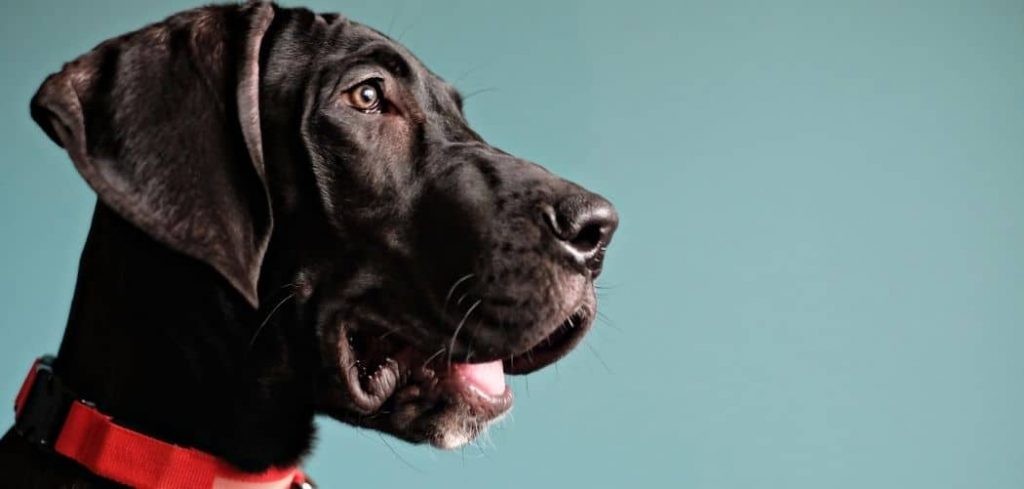Wheezing in a dog indicates that they are having difficulty in breathing. It is a high-pitched whistling sound heard when a dog is breathing.
What if dog hiccups and wheezing occur together? What does this mean?
We break down what it means when dog hiccups and wheezing occur, the causes, complications of it, and also when to seek immediate help.
Here's Why Dog Hiccups and Wheezing Happen
Dog hiccups and wheezing occur when a dog has an underlying respiratory condition that blocks or constricts normal passage of air into their airways resulting in a whistling sound, that is wheezing, which in turn triggers hiccups. This results in the production of wheezing and hiccups.

Causes of Dog Wheezing
Wheezing is a high-pitched whistling sound produced when a dog’s airway, that is the windpipe or bronchi, is partly blocked, tightened, or inflamed.
The wheezing sound is produced when air flows in the narrowed airway into the lungs as a dog breathes, usually when exhaling.
Wheezing can be caused by various health problems including:
Infectious diseases include infections by parasites that live in the airways irritate the passage, leading to wheezing.
Parasites that invade a dog’s airway include hookworms, roundworms, heartworms, and nasal mites.
Infection of the airway can also be from bacterial and viral infections which cause wheezing.
Recommended reading: Are dog hiccups faster?
Allergies from inhalation of dust, pollen, or smoke. These cause an allergic reaction which results in a swollen airway that makes breathing difficult.
Heart disease is congestive heart failure, especially in older dogs due to fluid buildup in the lungs.
Ingestion of foreign bodies such as toys, bones, sticks, or balls can block a dog’s airway and wheezing is produced as a dog struggles to breathe.
Collapsed trachea is a progressive condition that happens when the cartilage of the tracheal rings collapses, constricting airflow into the trachea.
Related: Do kennel coughs sound like hiccups?
Bronchitis is a condition of the lower respiratory tract of a dog. The condition leads to swelling and production of mucus causing the airways to narrow. Bronchitis can cause scarring of the airways making the bronchi membrane weak leading to coughing and wheezing.
In some dogs, the windpipe membrane can be loose and collapse making the windpipe narrow. This causes wheezing and difficulty in breathing. This is common in short nose dogs such as the Maltese, Pugs, Shi Tzu, Lhasa Apso.
Further reading:
Complications
Dog hiccups and wheezing are serious symptoms that need immediate medical attention. This is because with wheezing, a dog may have difficulty in breathing and the underlying health problem might turn to be life-threatening if not treated.
When To Seek Help
Dog hiccups last for a few minutes but in some cases, they may keep coming back and prolong more than normal.
If your dog hiccups last for more than 1 hour and also other signs of illness show up, including wheezing and starts having irregular labored breathing, medical attention is required.
Signs of illness include lethargy, coughing, drooling, pain, vomiting, or hard swallowing.
Also if your dog is wheezing and presenting other symptoms such as hiccups, always seek treatment immediately.
Take your dog to the veterinarian when:
- Difficulty in breathing
- Loss of appetite
- Wheezing continuously
- Wheezing with a fast rate of breathing (due to heart disease or chronic bronchitis)
- Coughing, wheezing
- Pale or blue gums which means lack of enough oxygen reaching the body tissues
The veterinarian will conduct a complete medical check-up of your dog to determine the underlying cause of the wheezing and hiccups.
Recommended reading: When to worry about puppy hiccups
The treatment will depend on the underlying cause. If the wheezing is caused by a parasitic, bacterial, or viral infection, medication will be administered to clear it.
If your dog swallowed an object, removal of the object causing airway obstruction will be done. And if the wheezing is a result of heart disease, the veterinarian will prescribe medication for the condition.
Wheezing due to allergic reactions is treated by the provision of medication and also by controlling your dog’s environment by minimizing exposure to allergens in your home.
This includes avoiding smoke, cleaning the home regularly to prevent the accumulation of dust, or avoiding fumes from harsh chemicals.
Bronchitis is also treated by the administration of medication.
A collapsed trachea or windpipe is treated by the provision of cough medication. In severe cases, surgery may be necessary to better open the trachea. Adjustment of a dog’s environment is also required, which includes having them rest in a cool, well-ventilated room, which helps to prevent overheating.
Treatment of the underlying condition that causes wheezing will also stop the hiccups.
Related: Why does my Great Dane get hiccups?
Summary
Dog hiccups and wheezing is not normal. It usually happens when there is an underlying respiratory condition that causes a to wheeze and have hiccups at the same time.
Because this can progress to severe and life-threatening outcomes, seek medical attention to ensure that your dog is examined and given the appropriate treatment.
